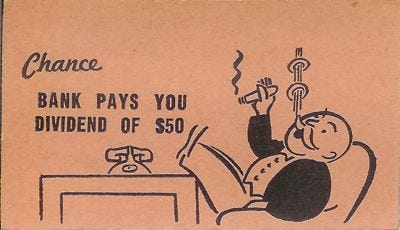You do understand how mutual funds work correct? These payments are often times reinvested back in to the fund. So if anything if the fund value drops by a greater amount than the amount of the dividend the dividend payment purchases a larger share of the units. Those units will often times increase in value as the underlying shares within the fund increase in value, as more units are purchased than sold, etc.
1.
For example, if you initially purchase 10 units at $10, the dividend is paid out of $1/unit and the fund decreases to $9, you purchase 1.1111~ units. Now you have 11.111~ units valued at $9, meaning the value of the fund has virtually not changed. When the value of the fund increases back to $10 your portfolio value is higher. If the value of the fund only increased, but you wanted to purchase more units, you would not be able to do so or could only do so if you contributed more of your own cash into the fund.
And consider regular contributions where that $10 unit might go to $11, then $12, then $15 in your no dividend world. Now your $100 contribution buys less units or you may not even be able to purchase a share in the case of common/pref. stocks to begin with. Now you have to go and find another fund/unit/stock to purchase for your $10 because you can no longer afford the $15 unit. You want dividends or else you would be in a position where you will not have a fund to purchase anymore as they would all be too high for you to purchase a unit.
You are also not taking in tax considerations for capital gains, losses and dividends for these funds and what they take on versus what you as an investor in a mutual fund would incur. You also are forgetting when the management fee comes out for the fund as well.



